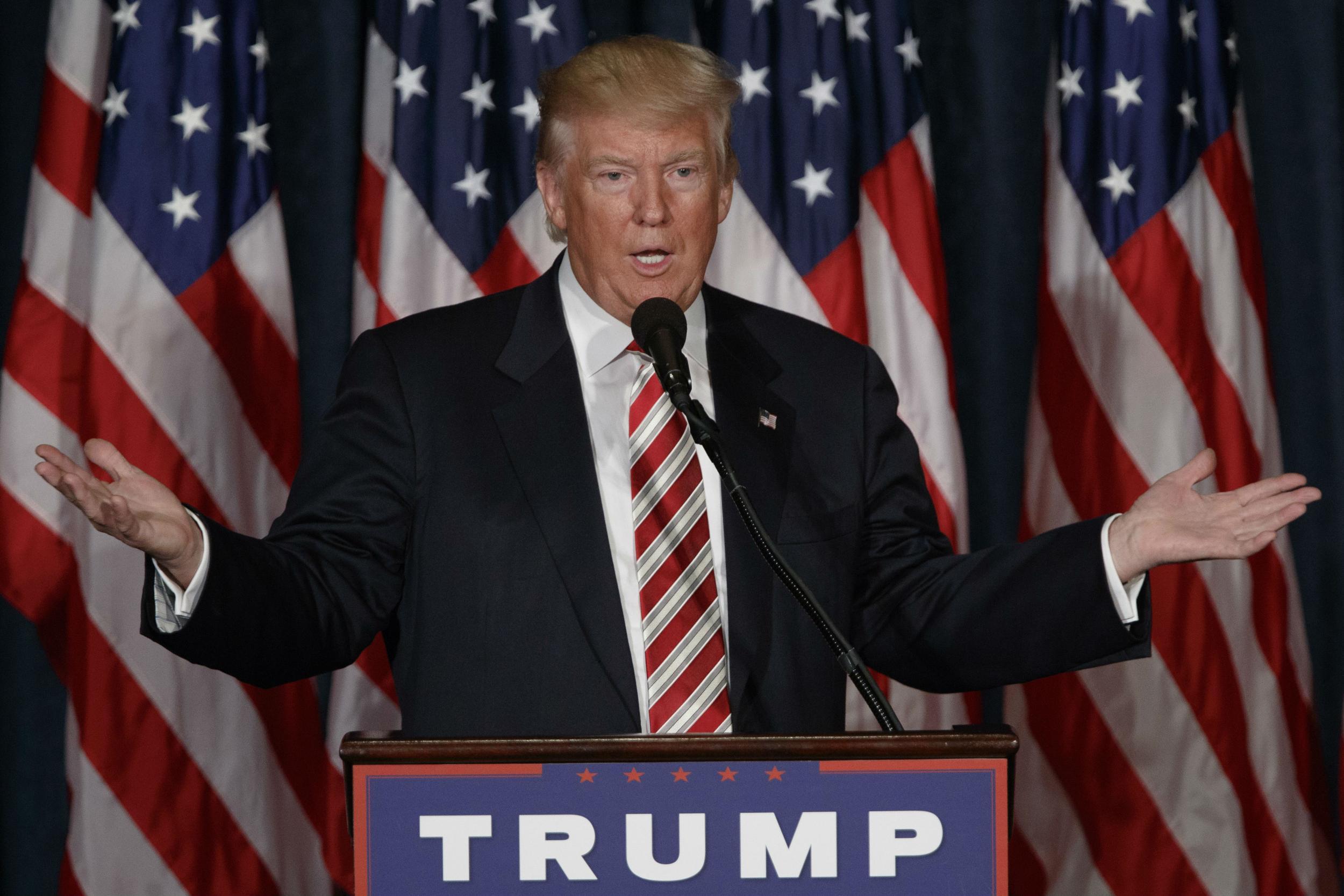Donald Trump vows to spend billions building up military as he tries to polish national security credentials
National security takes centre stage in campaign

Donald Trump has vowed to spend billions building up the US military - with new planes, ships, submarines and personnel - but how he would find the money is unclear.
In a speech in Philadelphia that was designed to rebuff claims from Hillary Clinton that he is unfit to be commander-in-chief, Mr Trump also repeated the assertion that he would order US generals to offer a plan to defeat Isis within thirty days of his taking office.
National security has taken centre-stage in the presidential campaign, with both candidates sparring on who between them is better suited to keep America safe. Later on Wednesday, both were due to lay out their stalls at a so-called ‘commander-in-chief’ forum on the NBC network.
“She is trigger-happy and very unstable,” Mr Trump said of his rival, asserting he couldn’t think of a country in the Middle East she had not wanted to invade or “topple”. Earlier this week, his campaign also released a letter from 88 retired generals and admirals offering him their support and citing an urgent need for a “course correction” in America's national security policy.
She has been returning fire. “They know they can count on me to be the kind of commander-in-chief who will protect our country and our troops, and they know they cannot count on Donald Trump,” Ms Clinton said of the US military on Tuesday. “They view him as a danger and a risk.”
Mr Trump’s notion of demanding a plan to obliterate Isis within 30 days of his taking office, first mentioned in a rally on Tuesday, has also drawn some harsh criticism.
“It's a sophomoric approach to elements of national security policy, because if he's just calling in the military, he's missing the point that there are several other elements of national security that will help defeat Isis,” Retired Army Lt. Gen. Mark Hertling told CNN.
“I had to ask myself, 'What the hell does he think we've been trying to do for the last 14 years in terms of al Qaeda?’” Gen. Hertling said, adding that the proposal from Mr Trump shows a “complete lack of understanding of the threat and the ways to fight it.”
Mr Trump said in Philadelphia that he would ask Congress to end the so-called ‘sequester’ that automatically imposed harsh cuts on military spending in 2011as part of deal to end an impasse in Washington DC on the federal budget that had already shut down the government.
“I am proposing a new foreign policy focused on advancing America's core national interests, promoting regional stability, and producing an easing of tensions in the world. This will require rethinking the failed policies,” he said.
In a policy note, the Trump campaign said it saw building up the Army to about 540,000 troops, claiming that Mr Obama’s goal had been a military of just 450,000 soldiers. Under Mr Trump’s command, the Marine Corps would grow to 36 battalions while the Navy would boast 350 surface ships and submarines and the Air Force 1,200 fighter planes.
The Republican nominee also spoke of building a “state of the art” missile defense system for the US, starting with modernising 22 Navy cruisers at a cost of about $220 million apiece.
The issue where the funds would come for such an expansion is likely to shadow him. He has spoken in vague terms of ending inefficiencies in spending and cracking down on tax evasion. But at the same time, he is also talking about protecting levels of social security support, including for aging Americans, and launching a vast infrastructure spending programme.
Mr Trump sowed deep distrust among many in the foreign policy community, including many Republicans, earlier in the campaign not least with his suggestion that he might ignore the mutual defence provisions of the Nato alliance if states that had not fully contributed to its budget faced aggression from Russia.
Even now, some top figures in the party remain wary of offering him their endorsement. That still includes Senator Bob Corker, the chairman of the Foreign Relations Committee, who displayed his caution about Mr Trump in an appearance on MSNBC on Wednesday.
“I do believe that Donald Trump is growing in his understanding of these issues and I think that he's beginning to get more and more people around him that have a depth of understanding as to the complexities and I'm watching this evolve,” he said, adding, “We'll all make our assessments,” in the candidates' foreign affairs skills by early November.
While the NBC forum on Wednesday night may offer something of a foretaste of the three planned presidential debates - the first is set for 26 September on Long Island - the two candidates will appear separately to answer questions on national security and will not therefore have the chance directly to engage with one another.
Join our commenting forum
Join thought-provoking conversations, follow other Independent readers and see their replies
Comments
Bookmark popover
Removed from bookmarks